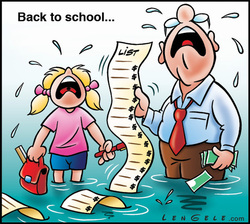
Immediately what came to my mind was my daughter and how would I feel to see her in a similar “shirt-label” situation. If the only identifier that she would be proud to display to the world would be that which declares her association to another person, what would that say about how much she values herself and her many individual talents, qualities, and roles she so beautifully plays? What does it say about the man that wears a shirt that so loudly proclaims his “self-sufficiency” while possibly undermining the impact of other people on his life, including his self-scaletlettered girlfriend? Is this girl’s self-label a reflection of a misguided expression of love, or is it a representation of a love “out of focus”? If so, what would happen when the center of this “girlfriend’s” identity began to act out, or “could not meet” her emotional needs? Then, again, what if this was nothing but dirty laundry accident where the “boyfriend” shirt did not get washed.
Reflecting on this shirt-label situation made me think of two things. I thought of how some women, in an effort to be caring and loving, may lower the standards of what is acceptable to them, pushing down their uniqueness and worth, too often ending up unfulfilled an unsatisfied. I thought of how some men who, for whatever reason (insecurities, passed wounds, etc.) may miss out on the fulfillment they can experience by committing to a truly intimate relationship with the woman they love, and by honoring and celebrating their partners for all they are.









 RSS Feed
RSS Feed
